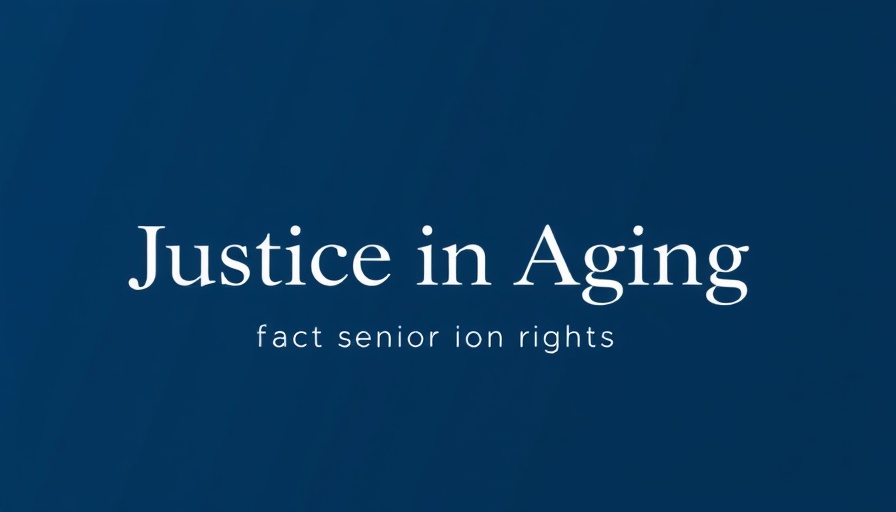
Celebrating Grandmothers: More Than Just a Day
Every year on July 23, the world shines a spotlight on the incredible women we call grandmothers. Known as Gorgeous Grandma Day, this celebration transcends recognition; it’s an homage to the strength, wisdom, and everlasting love they embody. At Sagora Senior Living, we believe that recognizing these women is vital because they enrich our lives with their stories, teachings, and boundless support.
Grandmas: The Heart of Every Family
Whether affectionately called Grandma, Nana, or Gigi, grandmothers often serve as the backbone of the family unit. Their experiences and the lessons learned over decades are crucial touchstones in our lives. On Gorgeous Grandma Day, we invite families and friends to reflect on their roles and appreciate the foundation they’ve built for future generations.
Ways to Honor Our Grandmas at Sagora
At Sagora Senior Living communities, we go the extra mile to ensure that Gorgeous Grandma Day is not just about acknowledgment but also celebration. Here’s how we honor these wonderful women:
Empowering Style and Self-Care Sessions
What better way to uplift grandmothers than with a day of pampering? Our communities host beauty days featuring mini-makeovers, hair styling, and manicures, culminating in exhilarating fashion shows where residents can strut their stuff. It's a joyous occasion that serves as a reminder that beauty comes from within, celebrated outwardly.
The Magic of Storytelling and Memory Sharing
Few activities capture hearts like storytelling. We invite our residents to share their most cherished memories, whether it’s tales of lifelong friendships, the thrill of their first job, or the secrets to maintaining happiness throughout their journey. This practice not only enriches the lives of the storytellers but strengthens community bonds and generations.
Creating Lasting Memories with Photo Shoots
No celebration is complete without capturing memories! Our teams organize special photo sessions, dressing grandmothers in their best for a day filled with laughter and joy. The printed photos serve as timeless keepsakes, allowing families to cherish the beauty and spirit of their beloved grandmas.
Connecting Through Family Visits and Special Meals
Inviting family members for special meals, whether it’s a brunch or a simple tea, enhances the celebration's significance. Sharing the joy on Gorgeous Grandma Day reminds us of the special bond family brings, strengthening connections that transcend time.
Bringing Joy with Compliment Corners
Affirmation stations or ‘Compliment Corners’ spring up in several communities, inviting residents to leave notes of appreciation or tender messages for grandmothers. These touching words create a warm atmosphere, full of smiles, laughter, and often tears of joy. It’s a heartfelt reminder of the impact these amazing women have on our lives.
How You Can Celebrate Gorgeous Grandma Day
You don’t need to reside in a senior living community to celebrate your own grandmothers! Here are a few meaningful ways to honor them:
Write a Love Letter
A handwritten note filled with appreciation can mean the world. Take time to share specific memories and lessons learned, expressing your love and gratitude.
Host a Tea or Lunch Date
Spending quality time together can be one of life’s greatest gifts. Whether in-person or virtually, a day filled with her favorite treats and fresh flowers can brighten her day.
Create a “Grandma’s Hall of Fame”
Gather photographs, stories, and mementos that commemorate milestones in her life. This could come together as a scrapbook or digital slideshow to share with family, celebrating the essence of who she is.
The Importance of Time
Giving the gift of time often holds the most meaning. Sometimes, simple acts such as listening to her stories can foster love and appreciation like nothing else.
Conclusion: The Legacy of Love
Gorgeous Grandma Day serves as a beautiful reminder of the love, wisdom, and legacies that grandmothers imprint on our lives. As we join in uplift their spirits, let’s also inspire generations to cherish and honor these extraordinary women in our families, not just on July 23, but every day.
**Let’s embrace this opportunity to create lasting memories, honor our grandmas, and embrace the teachings that they continue to share with us!**
 Add Row
Add Row  Add
Add 




Write A Comment